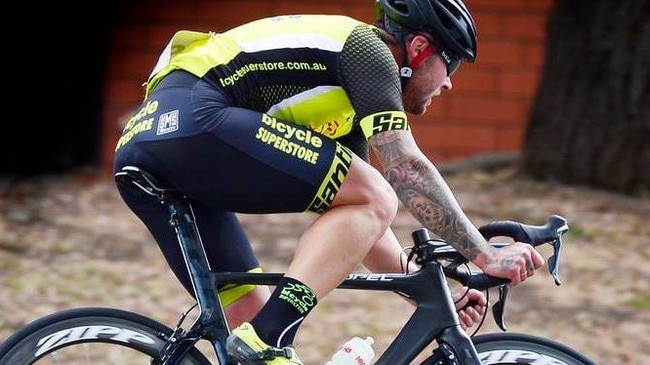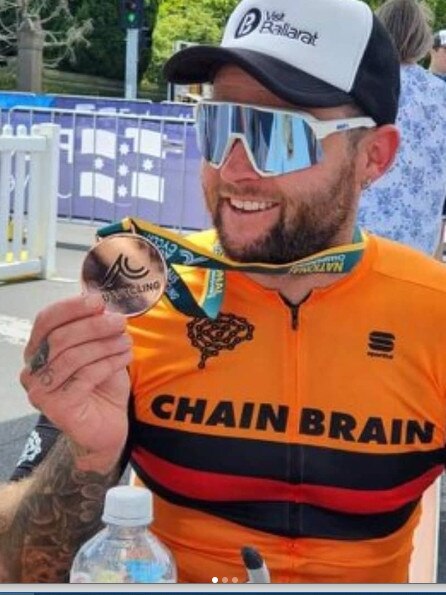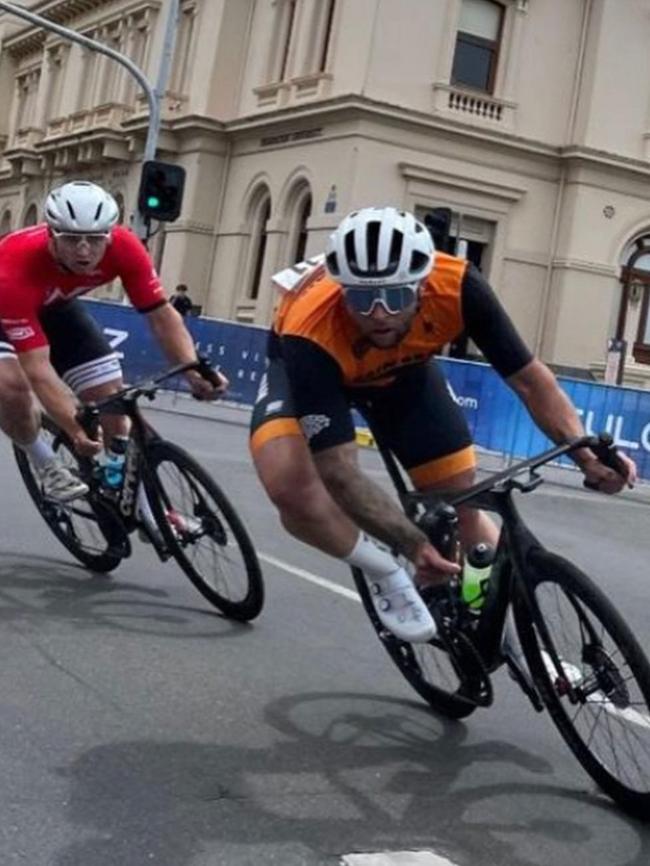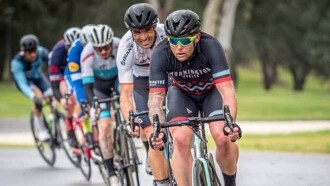Mornington Cycling Club rider Jackson Sharples banned over testosterone, cancer drug use
A Mornington Peninsula cyclist says he was “left in the dark” after being caught doping during a Masters race. Now he thinks things need to change.

South East
Don't miss out on the headlines from South East . Followed categories will be added to My News.
A Victorian cyclist slapped with a three year doping ban after a “simple mistake” wants more training and support for amateur athletes.
Jackson Sharples was recently banned by AusCycling for using prohibited substances including testosterone and Anastrozole, a drug normally used to treat early breast cancer.
The Mornington Peninsula man returned a positive test to the banned substances during the National Road Cycling Championships Masters Criterium in Ballarat on January 14, 2022.
Mr Sharples took bronze in the event.
The previous year he finished 11th in the same race.
Mr Sharples told the Herald Sun the positive tests were caused by medication prescribed by his doctor.
“Unfortunately I made the mistake of not checking if this medication was allowed in competition, and how long it would stay in my system for,” Mr Sharples said.


He said the situation was one amateur athletes could “easily find themselves in” and had “very limited awareness” of the rules and where to find support.
“This can be a very intimidating time, especially when a simple mistake by someone just trying to race their bike for health and enjoyment can lead to such stigma and lack of support,” he said.
“It needs to be recognised that people who return positive drug tests are not always people trying to cheat the system, but often ordinary people just trying to enjoy sport for their health.”
Mr Sharples called for training courses offered by Sport Integrity Australia (formerly ASADA) be available to all athletes required to abide by anti-doping rules, not just those involved in high-performance programs.
Mental health support should also be offered as soon as any athlete tested positive and the rulings process made quicker, he said.
Mr Sharples’s case was not finalised until nearly two years after he recorded his first positive results.
“Leaving a person in the dark like they did, in my case for years, is unfair,” he said.
“It is extremely difficult to be experiencing an indefinite ban, with no suggestion about when it will end, or when you will receive an outcome.”

Prior to the positive drug test Mr Sharples returned on January 14, 2022 AusCycling also found that between August 16, 2021 and December 31, 2021, he used or tried to use Ipamorelin – a peptide that aids in muscle growth, fat loss and recovery – and DHEA, a naturally occurring hormone that helps produce testosterone.
The authority also ruled Mr Sharples possessed testosterone and/or Anastrozole and/or Ipamorelin and/or DHEA during the same period.
Mr Sharples will not be able to participate in any sports that have adopted a World Anti-Doping Code compliant anti-doping policy until December 31, 2024.
His home club, based in Mornington, said Mr Sharple’s situation was “really unfortunate” and had significantly impacted the club.
A club spokesperson said it was working to raise awareness about Sport Integrity Australia regulations to ensure other riders did not face similar challenges.
“We believe this education is something that is not commonly done throughout cycling clubs in Australia and we’re excited to look at ways we can lead the way on this issue.”


